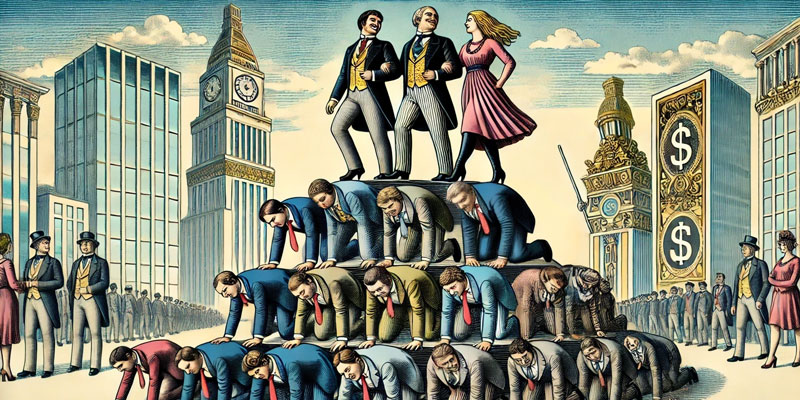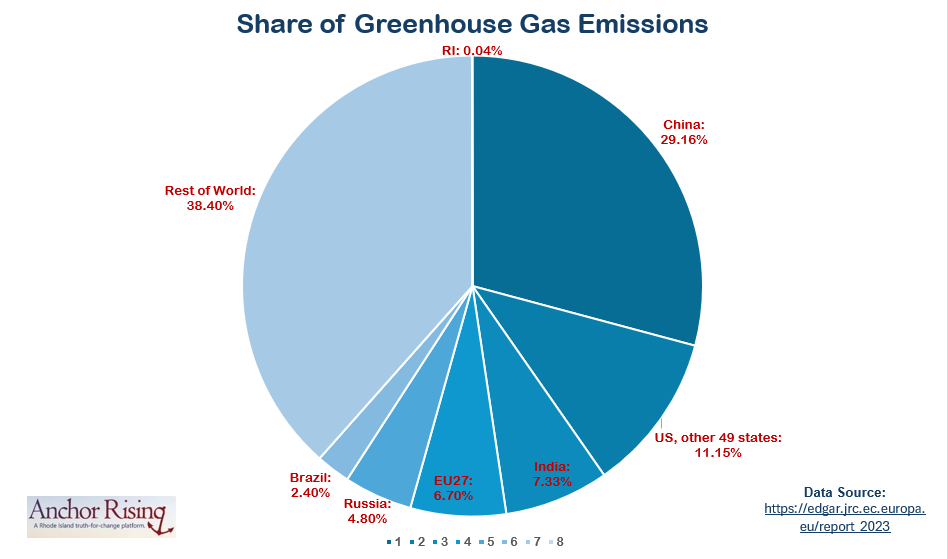I came across a quotation from Nassim Taleb’s book, Antifragile, suggesting that the more immediate your focus (e.g., hourly versus annually), the greater the noise-to-signal ratio. That is, the effects from moment to moment are more likely to result from random or unrelated factors, while longer-term trends are more likely to reflect genuine changes. The advice is worth keeping in mind while listening to commentators try to fit every moment’s occurrences into a long-term analysis and prediction.
The same goes for assessing strategies.
I don’t know if they reflect a deliberate plan (with Donald Trump, I tend to doubt it), but much of the reaction to statements from the Trump campaign seem blithely to ignore the fact that there are still months of campaign to cycle during which he can cycle through all variety of evidence that Harris is a dishonest chameleon, whether about her identity, policies, Biden coverup, etc. An off-color comment, now, about her race will get a lot of attention, embed ideas about whether he life story is truly reflective of a particular demographic’s experience, which people might not otherwise have considered, and then fade with the constant news cycle.
How much is instinct and how much is strategy is always a difficult question with Trump, but commentary at the speed of Twitter is mostly noise.
[Open full post]On WNRI 1380 AM/95.1 FM, John DePetro and Justin Katz discuss:
- No-bid moving contracts in Warwick schools
- No academic gains in Providence schools
- No Ruggerio at Ruggerio fundraiser
- Amore returns (some) transparency to voter rolls
- Two big private-sector layoffs
- One big Democrat donation from Kalus
Featured image by Justin Katz using Dall-E 40.
[Open full post]The above pie chart speaks for itself. Rhode Island’s greenhouse gas emissions are so small, they barely register on the chart.
That Rhode Island, the smallest state in the country and, on top of that, one with a poor business climate that has further driven down its carbon footprint [because that’s the highest priority, right? ;)] has tiny GG emissions seems like one of those things that is so obvious, it doesn’t need to be pointed out. Like noting that vertically challenged people don’t make the best basketball players. Or that Sumo Wrestler is probably not on the short list of career options for the guy with a 98 pound frame.
But apparently this does need to be pointed out. Because the “2021 Act on Climate” law, which effectively bans all fossil fuels – gasoline, diesel, heating oil, coal, natural gas and propane – in Rhode Island and for its electric grid, is still very much on the books and being acted on. The Act is
aimed at addressing climate change
Here’s the thing. Rhode Island’s greenhouse gas emissions are so small – at the risk, once again, of pointing out something pretty obvious! – that going to net zero would have zero effect on global warming … er, climate change.
But, you ask, what’s wrong with jettisoning fossil fuels and switching to offshore wind energy, as many of our elected officials wish us to do? It’s a nice, clean (cough, cough) energy source.
Because offshore wind generates power at most only 50% of the time.
So the proposed switch to offshore wind is a proposal for Rhode Island to
derive 80-90% of its electricity from offshore wind by the end of the decade
as well as power all of the state’s other sectors – heating, cooling, transportation, manufacturing, medical, construction, etc – by 2050 from a source with a capacity of only 50%. (At an exorbitantly expensive price, to boot.)
50% capacity to take care of “80-90%” of our energy needs? Come to think of it, that’s something that is not at all obvious. Can we get an explanation as to how that’s going to work?
It’s an election year. Perhaps our elected officials can be asked to explain this, either at candidate forums or when they knock on your door to ask for your vote.
Notes about the pie chart:
> Rhode Island’s percentage was calculated on a per capita basis (RI population of 1,098,163 divided by US population of 333,290,000) and deducted from the United States’ percentage so that it was not double-counted.
> The total greenhouse gas reflected in the pie chart is manmade only and does not include greenhouse gases generated naturally by Planet Earth. In other words, the chart excludes 94% of greenhouse gases generated.
[Featured image: Anchor Rising via basic math]
[Open full post]In 2021, the Rhode Island General Assembly passed and Governor Dan McKee signed a law that mandates for the state net zero greenhouse gas emissions by 2050.
What this would mean in real terms is, no more fossil fuels for Rhode Island. No gas or diesel to power our vehicles. No heating oil, natural gas or propane to heat and cool our homes and buildings or power any activity in the state.
And none of those reliable fuels to power Rhode Island’s electric grid.
So what are we supposed to use in place of those critical fuels? Well, the Act on Climate law doesn’t say, presumably because the governor and the legislators who voted in favor of it lacked the courag … er, chose to hand that critical matter over to an unelected body, the Climate Change Coordinating Council.
This Council has identified these alternative sources to reliable fossil fuels:
offshore wind, land-based wind, wholesale solar, and retail solar
And as you have probably seen in the news, state leaders are going in big on offshore wind.
Here’s the issue. Offshore wind has serious downsides that make it non-feasible as a primary energy source. (In addition to turbine blades that can break.)
1. Cost – Very High
Offshore wind is a really expensive way to generate electricity. Over three times more expensive than natural gas.
The US Energy Information Administration reports that offshore wind is one of the most expensive forms of electricity generation, estimating that in 2026, producing one megawatt-hour of electricity from offshore wind will likely cost about $121–almost double the cost of generating that same amount of energy with an advanced nuclear reactor ($69), more than three times the projected cost of producing it with natural gas ($37), and even more than coal ($73).
Here are some of the factors that make it so expensive.
That cost is picked up by both taxpayers, in the form of tax subsidies, and by rate-payers. And Rhode Island already has some of the highest electric rates in the country.
Its very high cost, accordingly, makes offshore wind a non-feasible source of energy altogether, not just as a primary source.
2.) Generating capacity – Limited
Generating capacity is more formally known as “capacity factor”. The EIA projects that offshore wind’s capacity factor WILL BE 50-58%. So that’s on the optimistic/high side.
Looking at actual performance, offshore wind’s capacity factor from 2010 to 2022 was 42%.
And in 2017, Rhode Island Office of Energy Resources used a capacity factor for offshore wind of 48% in its “Rhode Island Land-Based Wind Siting Guidelines” (Page 9).
Let’s call it 50%. So the proposal by our elected officials – and let’s be clear, this is their doing, much as they would like to pretend it is someone else’s – is to power our vital electric grid and eventually, all major sectors like transportation, HVAC, medical, all businesses, heavy highway construction, etc, with a source that generates power 50% of the time.
How’s that going to work? It won’t, of course. And using natural gas as a “balancing resource”, as a few have proposed, is not a solution as it violates the Act on Climate law. (Not a zero emissions source; sorry.)
Combine it with solar? Nope; solar has a maximum capacity factor of 17%.
Another complication of offshore wind: energy experts on both sides of the issue agree that a significant industrial battery capacity needs to be added to the grid for renewables to work. But the exorbitant cost, resource constraints and ramp-up time of adding such capacity make this at best a dubious proposition for Rhode Island’s electric grid and rate-payers.
In short, offshore wind is neither adequate nor feasible to power the grid, even without adding the demand from all other state activity, as our elected officials envision.
Two con men pretended to weave the emperor beautiful cloth, from looms that were actually empty, to make him a very expensive, magnificent and ultimately non-existent new outfit.
Unlike the emperor, however, Rhode Islanders do not have the luxury of indulging in an expensive fantasy about the amount of power on our electric grid.
Featured image by AshrafChemban via Pixabay
[Open full post]The Democrats’ appointed Presidential candidate, Kamala Harris, kicked off a universal trend among Democrats to call straight, married men “weird,” while Transportation Secretary Peter Buttigieg, who is homosexual, told a call full of racially segregated white men that abortion makes life better for men, too. See, that way, we don’t have to worry our sex will create children, because we can rely on the women to kill them in the womb.
Naturally, underlying these cultural prescriptions is the expectation that big-daddy government can always come in and fix your problems for you, provided you keep Democrat socialists in power.
[Open full post]… but it’ll require a turn away from progressives’ insistence that everything must be politics. This clip of Eric Weinstein and Nicole Shanahan discussing the “mind control at scale” we’re seeing at the national level is worth the four minutes of your time.
It’s not only that our system has been coopted by the gaslighters, but also that it has been restructured to punish truth telling. One way in which this is true, as Weinstein points out, is by refusing to exonerate those who were attacked for telling the truth even when the lie blows up. (His prime example is the “Joe Biden is just fine” lie.)
I can’t help but see a common thread with Democrats’ shameful whitewashing of COVID so they can take credit for the economic improvement that came inevitably after unlocking the economic door. A healthy society would have a tacit agreement not to seize on such dire circumstances for cynical political gain, but a healthy society wouldn’t serve the progressive Democrat Party. Indeed, one could easily foresee during the 2020 election that one reason they were so desperate to cheat and win was that they knew the economic recovery would be an easy talking point.
[Open full post]On WNRI 1380 AM/95.1 FM, John DePetro and Justin Katz discuss:
- Lockstep as a synonym for “Democrat”
- Stefan Pryor’s very Rhode Island management technique
- Raimondo as girl Veep?
- Raia’s promo spot on Bartholomew Town
- Local firefighter negotiation
- Republican ethics infighting in Cranston
- Republican contraceptive infighting for Senate
Featured image by Justin Katz using Dall-E 40 and Photoshop AI.
[Open full post]If this is true, Secretary of State Gregg Amore deserves credit for undoing at least one instance of the state Democrat Party and Nellie Gorbea’s invitation to voter fraud:
RI Secretary of State Gregg Amore just corrected a wrong made by his predecessor, Nellie Gorbea. In 2017, she unilaterally changed a policy to only provide years of birth in the RI voter data file after I raised issues with how the voter rolls were being maintained. Gorbea made this change without following the rule-making process dictated by RI law.
Amore unwound Gorbea’s unlawful action, and RI now delivers full dates of birth in the voter file. Huge kudos to Secretary Amore for being reasonable, lawful, and executing his job without regard to ideology.
Worth noting that Ken Block, who reported the above on X, is on the right side of this one, too.
[Open full post]It’s amazing how quickly things are moving. Watching the news media conspire with the Democrat Party literally to deny facts about Kamala Harris and disappear them from the Internet makes Martin Gurri’s two-week-old musings on the Joe Biden coverup look tame:
With Biden, the establishment was presented with a difficult challenge: It was reality itself that needed fixing. The president, we have seen, is an inarticulate speaker, has a bizarre personality, is notoriously thin-skinned and lacks humor and charm as a public person. Furthermore, his administration has been responsible for one disaster after another, at home and abroad. All that had to be fixed. The fictional replica of Biden required an equally fictional—and magnificent—record of achievement.
In an effort that has to be unparalleled in our history, every American institution, from the prestige press to the digital platforms, from academia to the entertainment world and very much including the federal bureaucracy, was recruited to portray President Biden as the second coming of Abraham Lincoln. He was said to be caring, empathetic, a totally normal Everyday Joe who bonded easily with racial minorities—but also serious about his duties, the dignified adult in the room, a reliable ally who would never be manipulated by Vladimir Putin. His administration had defeated the pandemic, saved the economy, embraced migrants of all races, ended a forever war in Afghanistan and somehow protected Ukraine, Israel and Hamas simultaneously. As for the president’s age, he was old but wise, sharp in private though a stutterer in public and surrounded by the best and brightest in any case.
After Biden’s disastrous debate performance, I suggested on social media that the Democrat powerbrokers were evaluating just how far they were willing to go, and they subsequently decided. They’ll go all the way. They’ll destroy everything to remain in power. They can’t go back.
[Open full post]Hard to believe it was 16 years ago America elected Barack Obama to the presidency. In office, he did, indeed, usher in a revolution in American politics and society, and 16 years is many years of people coming of age without really knowing what things were like before the event. Cynical Publius tells the truth:
In 2008 America was as close as it would ever be to stamping out its original sin of racism. American brotherhood and sisterhood without regard for race was in sight. It had been a long, hard slog, but we could see the finish line.
Then Barack Obama got elected and he set out, quite deliberately and with malice aforethought, to drive racial wedges in our society at every turn. Why? Because Democrats gain and maintain power by pitting identity groups against each other. Obama knew this and he set back race relations to the 1970s. It was a crime–maybe not a legal crime, but surely a moral crime.
American has not yet recovered, in large part because Obama’s Fascist Democrat devotees truly learned the power of divisiveness.
Divisive, racialist ideas had been cultivated on American campuses, and the Obama years set the virus loose, setting race relations back decades for electoral gain. Such a shameful organization is the Democrat Party. One can only hope history will be wise enough to look back unkindly on its followers.
[Open full post]





